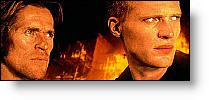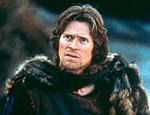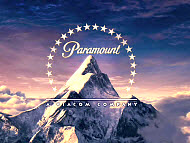The Reckoning
 for some sexuality and violent images.
for some sexuality and violent images.
Reviewed by: Chris Monroe
STAFF WRITER
| Moral Rating: | Average |
| Moviemaking Quality: |
|
| Primary Audience: | Adults |
| Genre: | Drama |
| Length: | 1 hr. 42 min. |
| Year of Release: | 2004 |
| USA Release: |


What is faith? Answer
What is adultery? Answer
What is fornication? Answer
How can I deal with temptations? Answer
What are the consequences of sexual immorality? Answer

Learn how to make your love the best it can be. Christian answers to questions about sex, marriage, sexual addictions, and more. Valuable resources for Christian couples, singles and pastors.
| Featuring |
|---|
| Paul Bettany (Dogville, The Heart of Me, Master and Commander: The Far Side of the World), Willem Dafoe (Once Upon a Time In Mexico, Spider-Man), Ewen Bremner (The Rundown, Black Hawk Down), Vincent Cassel (Birthday Girl), Brian Cox (X2: X-Men United, The Bourne Identity) |
| Director |
|
Paul McGuigan |
| Producer |
|
Caroline Wood Renaissance Films Production |
| Distributor |
Here’s what the distributor says about their film: “The Reckoning is a murder mystery set in the Middle Ages yet steeped in moral dilemmas about the power of art, the temptations of evil and the search for justice that continue to haunt us in modern times.
On the run in the dead of winter, a fugitive priest named Nicholas (Paul Bettany), joins with a troupe of traveling actors led by the charismatic Martin (Willem Dafoe). Lost in the woods, the group arrives at a village, where the actors encounter a woman named Martha being sentenced to death for the murder of a young boy. Under Martin’s leadership, the actors defy tradition, discarding their usual Biblical plays, and instead, decide to stage a bold performance based on the real-life crime, turning entertainment into persuasion.
But the players don’t have the facts straight. Through the creation and performance of the play, they discover to their dismay that Martha may be innocent and the ruthless killer still at large. Nicholas turns into an amateur sleuth, following a trail that leads to the castle that towers over the village. As the stage becomes a place where vital human truth is told, it changes the actors, the townsfolk and the very balance of power irrevocably.
Now, Nicholas must make a fateful choice—to keep on running or take a real stand for justice and, in the ultimate sacrifice, reveal his own hidden crimes.”
Assessing the best way to spend your time and money at the movies, one investment you can count on is at “The Reckoning.” Adapted from the novel by Barry Unsworth entitled Morality Play, this tale acknowledges the reality of our sinful human condition while showing good triumphing despite it. This movie honors truth, justice and authentic faith in God.
A period piece set in England during the Middle Ages, this narrative follows a country priest, Nicholas (Paul Bettany), who flees his parish after an adulterous affair with a woman from his congregation. On the run for his crimes, Nicholas joins up with a troupe of traveling actors en route to a fief where they are sent to perform mystery plays. But after the townspeople’s indifferent reception to the troupe’s performance, the leader, Martin (Willem Dafoe) decides to present a new play about a young boy from this town, Thomas Wells, who was recently murdered.
Flashbacks of Nicholas’ crime are used throughout the movie to reveal more and more of the scenario. The flashbacks involve the adulterous affair and show some brief nudity and some explicit sexual moments. No foul language was detected in this movie, but there are some situations where individuals are shown after being murdered, someone being fatally struck, and an incident of someone hanging dead.
Ironically, one of the redeeming qualities of the film is that Nicholas ends up being more effective for God after he abandons his official role as a priest. As a clergyman, he preached dogmatically about the difficulties of life, but he embraces righteousness more sincerely as a broken man, after his fall. He continues to work as a minister amongst the troupe (performing a burial ceremony and playing the role of “Good Counsel” in the play), but he is also a common man—living, eating and even drinking with them.
Nicholas struggles with his faith, which shows when he says, “I think God has given up on me now.” But Nicholas grows stronger as he continues to make right choices. In one instance, he has the opportunity to sleep with a woman of the troupe, but chooses not to. Later, the antagonist of the story daunts Nicholas when he finds out he’s a priest, and asks, “Do you really think this God of yours can protect you?” Nicholas responds by saying, “I don’t claim to understand it all, but I believe.”
In discussing the idea of presenting Thomas Wells’ story, the troupe debates amongst themselves as to whether or not they should be veering from their usual Bible stories. The argument is that they have to tell stories about God. It’s here that Nicholas exclaims that God is everywhere. He says that if the story is truthful, then God is in it, and adds, “It’s up to us to find Him.” Martin also adds that they’re not discarding the Bible stories, but taking the principles and meaning from it and applying it to this new story.
Nicholas can be interpreted as a kind of Christ-figure in this film. Obviously, he is not perfect like Jesus, but after his reform, he does things that exemplify Christ—including sacrifice. He can also be compared to King David, who was guilty of some of the same crimes Nicholas commits here.
This film involves adult themes and content on several levels. It does not shelter from depicting the ugliness of sin, but it does not do so without bringing about something fully redemptive. It is a mature piece, and, Nicholas says, God is in it, but it’s up to us to find Him.
Violence: Moderate | Profanity: Minor | Sex/Nudity: Moderate


